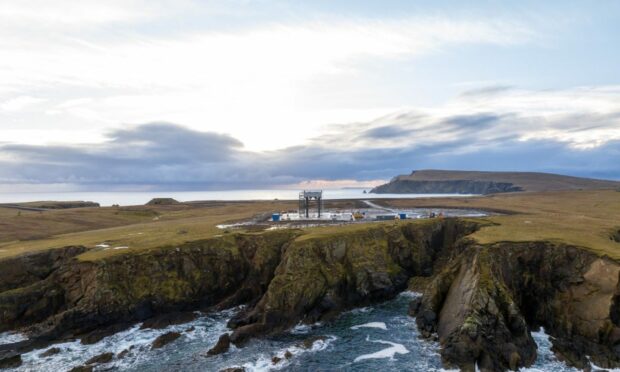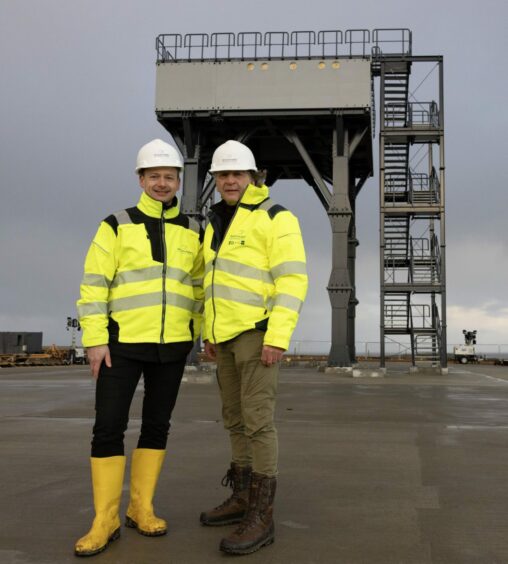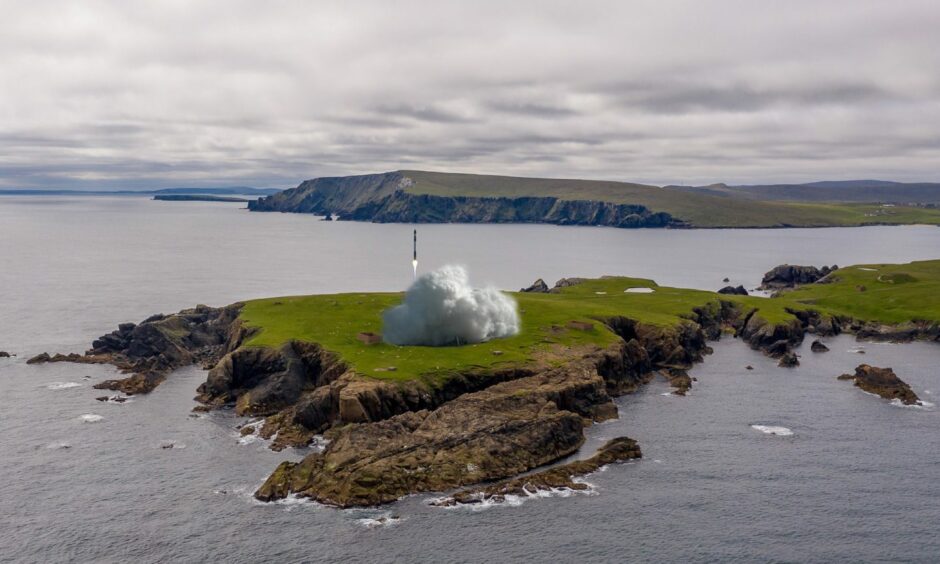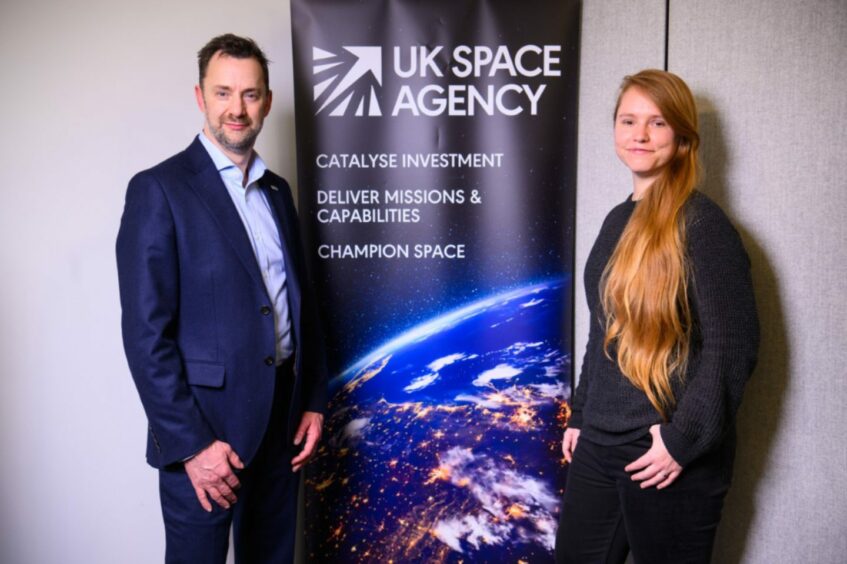SaxaVord Spaceport in Shetland has announced a launch operations partnership with German company Rocket Factory Augsburg (RFA).
RFA will have exclusive access to launch pad Fredo for orbital launches from Unst.
It means the company’s first launch of its One launch system, which is currently planned for the end of 2023, will take place from the northernmost point in the UK.
SaxaVord will be extra keen to make the launch a success after this week’s failure of Virgin Orbit’s rocket .
Despite technically reaching space, Virgin’s rocket encountered “an anomaly” which ended the mission.
RFA said the Shetland Spaceport was “ideally located” for it to launch payloads into “polar, sun-synchronous” (fixed to the sun) orbits.
It cited the Unst facility’s logistics, infrastructure and launch readiness as key factors for the partnership.
The deal includes investments in the double-digit million-pound spaceport and is slated to last several years.
The launch pad was completed during 2022.
It will be the first for vertical orbital rocket launches in the UK and mainland Europe.
The facility will be used for orbital launches, as well as for testing and qualification of One core stages.
Tests are expected to get underway in mid-2023, with a first launch into a 310-mile orbit.
We firmly believe in the UK’s space vision.”
Jörn Spurmann, chief commercial officer, RFA.
RFA chief commercial officer Jorn Spurmann, who visited SaxaVord Spaceport on Monday, said: “This partnership of privately-financed companies enables the spirit and speed we need to be on top of the commercial small launch competition.
“The SaxaVord team was determined to build our launch pad and get the operations up and running.
“We are proud to be part of this historic event for the UK. We firmly believe in the UK’s space vision and are absolutely convinced the double-digit million investment in the site is well placed.”
SaxaVord Spaceport chief executive Frank Strang said: “We will support RFA across the entire lifecycle of a launch, from facilitating testing, inspections, fuelling and safety, to supplying Met (Office) weather data and access to our ground station network for data capture and distribution.”
The partnership will allow RFA to launch satellites aimed mostly at earth observation and communications.
But the data collected can benefit any industry.
Examples of applications include the optimisation of logistics routes, early detection of forest fires; the Internet of Things and analysis of ground conditions.
The data could also prove useful for the maintenance of infrastructure; collection of health data; self-driving cars; and climate and environmental protection.
Meanwhile, applications open today for the near £1.5 million UK Space Agency Accelerator programme.
Featuring three levels of support, it is managed and delivered by Entrepreneurial Spark and Exotopic following a successful pilot in 2021.
The two-year rolling programme is expected to see 180 entrepreneurs’ ideas given a business boost by specialist coaching, network opportunities and support.
It is not only traditional space businesses which are encouraged to apply.
UK Space Agency chief executive Paul Bate said: “The UK Space Agency Accelerator will help entrepreneurs across the country start and grow their businesses, joining the UK’s thriving space sector, which already employs 47,000 people.”



